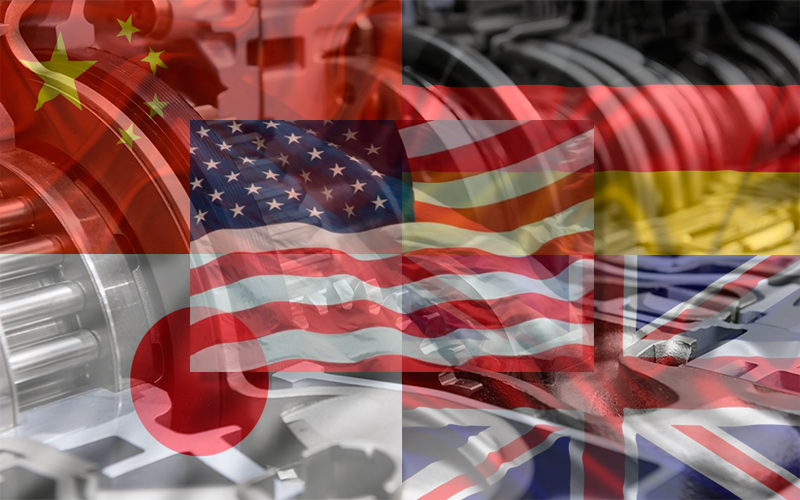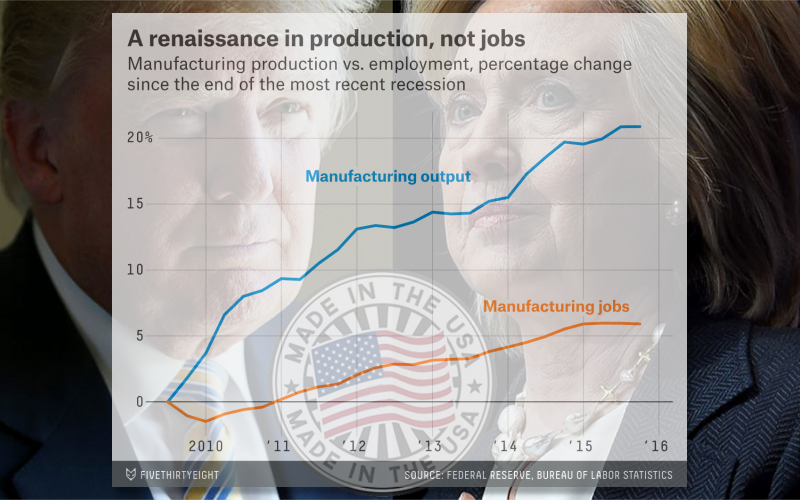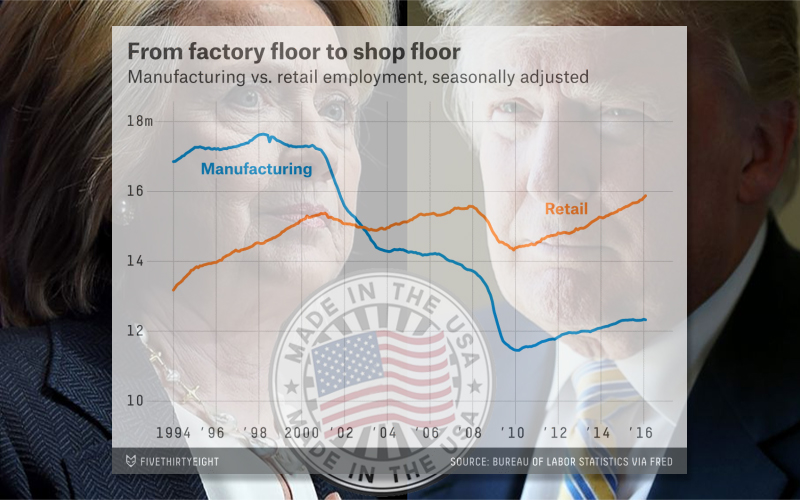Stop Talking About US Manufacturing Jobs Coming Back, Because They’re Not!
A plea to presidential candidates: stop talking about bringing manufacturing jobs back from China, in fact, talk a lot less about manufacturing, period.
It’s understandable that voters are angry about trade.
The U.S. has lost more than 4.5 million manufacturing jobs since North American Free Trade Agreement (NAFTA) took effect in 1994.
And as Eduardo Porter wrote this week, there’s mounting evidence that U.S. trade policy, particularly with China, has caused lasting harm to many American workers.
But rather than play to that anger, candidates ought to be talking about ways to ensure that the service sector can fill manufacturing’s former role as a provider of dependable, decent-paying jobs.
Here’s the problem: Whether or not those manufacturing jobs could have been saved, they aren’t coming back, at least not most of them.
How do we know? Because in recent years, factories have been coming back, but the jobs haven’t.
Because of rising wages in China, the need for shorter supply chains and other factors, a small but growing group of companies are shifting production back to the U.S.
But the factories they build here are heavily automated, employing a small fraction of the workers they would have a generation ago (case in point, watch the video “How the Tesla Model S is made”).
Look at the chart below: Since the recession ended in 2009, manufacturing output - the value of all the goods that U.S. factories produce, adjusted for inflation - has risen by more than 20 percent, because of a combination of “reshoring” and increased domestic demand. But manufacturing employment is up just 5 percent.
And much of that job growth represents a rebound from the recession, not a sustainable trend. (The Washington Post’s Abha Bhattarai had a great story this week on what the much-touted “manufacturing renaissance” really looks like through the eyes of one Georgia town.)
None of that, though, stops Donald Trump from promising at every debate and campaign stop to “take our jobs back from China and all these other countries.” Nor does it stop the other candidates from visiting factories in Southern and Midwestern towns and promising - albeit in less grandiose terms - to restore the lost luster of American manufacturing. “I’m tired of seeing them creating jobs all over the world while they’re laying off American workers,” Bernie Sanders told a crowd in Youngstown, Ohio, last weekend. “Not acceptable. That is going to end.”
Read: Can Trump Bring Apple Manufacturing Jobs To USA?
There’s no mystery why candidates love to focus on manufacturing and trade. The U.S. economy faces deep structural challenges - stagnant wages, rising inequality, falling employment rates among men and other groups - and China presents an easy scapegoat. (Wall Street often plays a similar role, especially on the Democratic side.)
And manufacturing in particular embodies something that seems to be disappearing in today’s economy: jobs with decent pay and benefits available to workers without a college degree. The average factory worker earns more than $25 an hour before overtime; the typical retail worker makes less than $18 an hour.
But those factory photo ops ignore an important reality: In 1994 there were 3.5 million more Americans working in manufacturing than in retail. Today, those numbers have almost exactly reversed, and the gap is widening. More than 80 percent of all private jobs are now in the service sector.
There is nothing wrong with politicians’ trying to save what remains of U.S. manufacturing, nor with trying to avoid repeating old mistakes on trade. But like it or not, the U.S. is now a service-based economy.
It’s time candidates started talking about making that economy work for workers, rather than pining for one that’s never coming back.
Source: FiveThirtyEight
Related: U.S. Manufacturing Competitiveness Rising
















